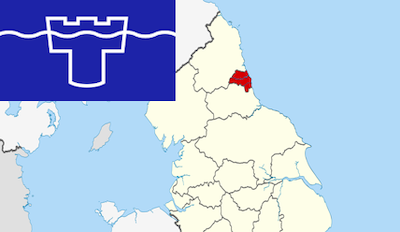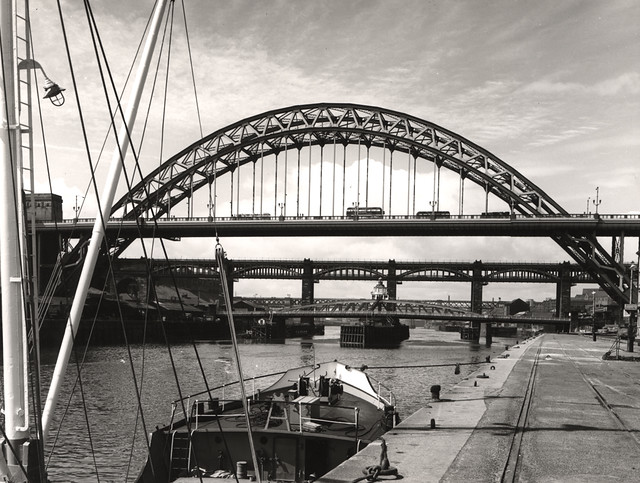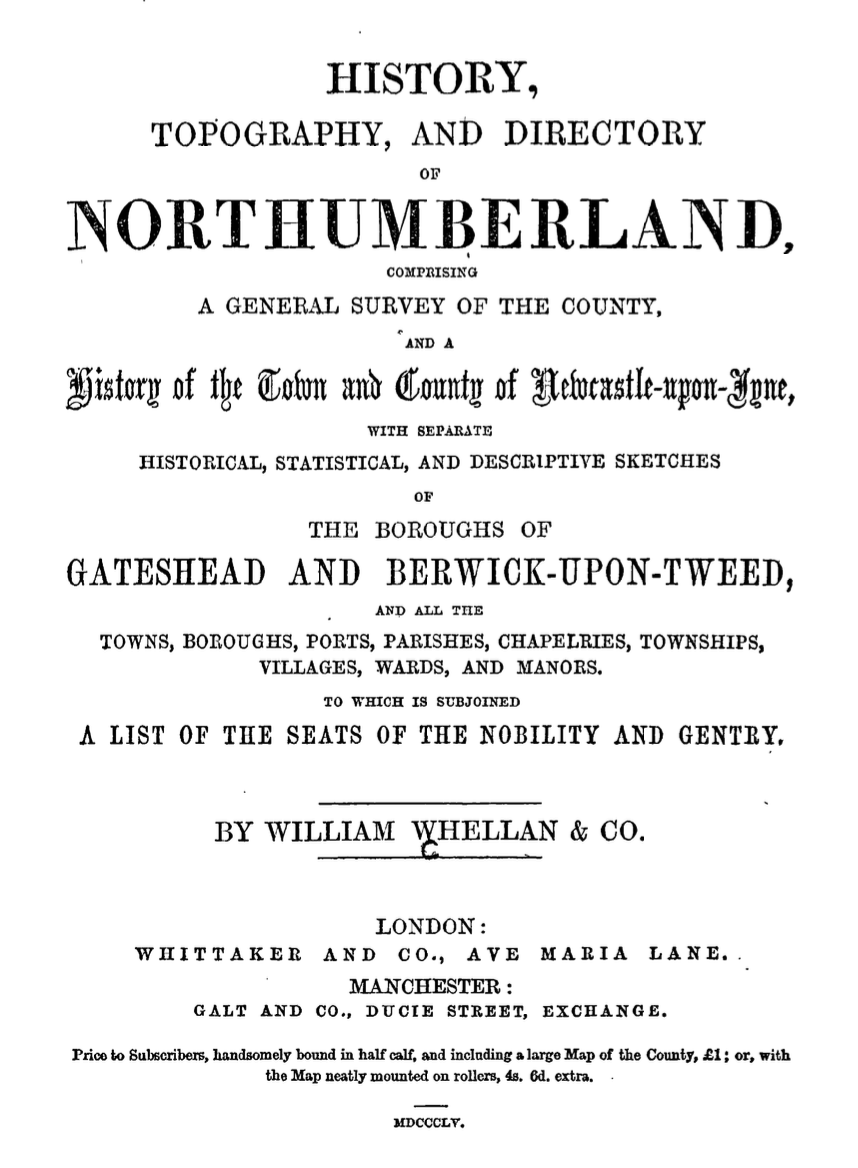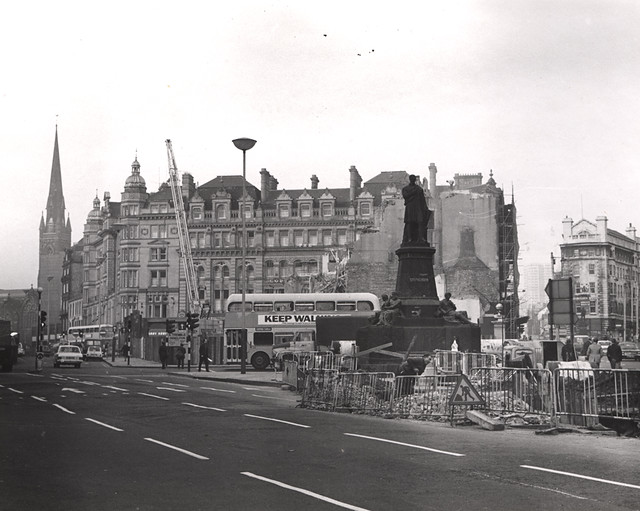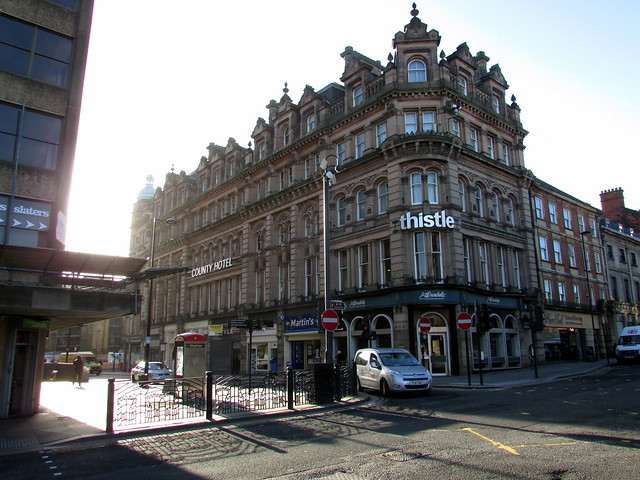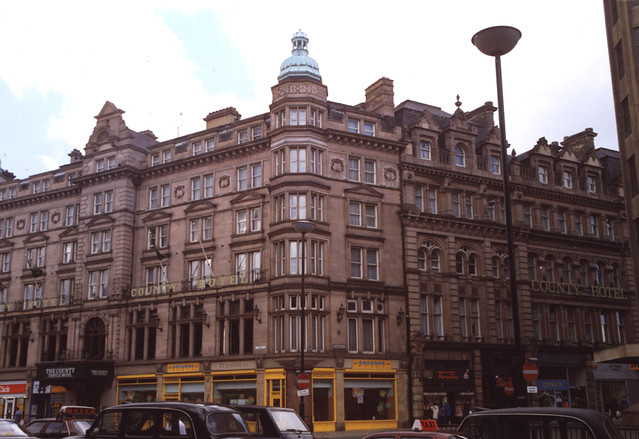Topics > Tyne and Wear > Newcastle upon Tyne > Newcastle, 1855 > Newcastle Corporation, 1855
Newcastle Corporation, 1855
Extract from: History, Topography, and Directory of Northumberland...Whellan, William, & Co, 1855.
CORPOPRATION, etc.
In 1835, a bill received the sanction of the legislature for the "Regulation of Municipal Corporations in England and Wales," and by the provisions of this act, the old corporation of this borough was dissolved, and a new body established, which consists of a mayor, fourteen aldermen, and forty-two councillors, with the customary assistant officers. Under the authority of this Municipal Act, the borough is divided into eight wards, called the St. Nicholas's, St. John's, All Saints' West, All Saints’ East, St. Andrew’s South, St, Andrew's North, Westgate, and Jesmond. Six of these wards elect six councillors each, the two wards of Westgate and Jesmond only elect three each. The councillors retain the office for three years, but are eligible for re-election. A third of the number retire from office annually, and their vacancies are supplied by annual elections. The aldermen are now appointed by the councillors, and during their term of office, which is six years, they are members of the council, possessing no power or authority above the councillors. The mayor is elected annually by the council, aldermen and councillors alone being eligible. Previous to the passing of the above act, the mayor, recorder, aldermen, sheriff, and common council were chosen from among the freemen of the town, also, all the officers of the corporation, and none but freemen could serve on juries, but these privileges are now enjoyed by the whole body of burgesses. The following is a summary of the various rights and privileges now enjoyed by the freemen of Newcastle. Freemen residing in the borough, or within seven miles of the same, possess the right of voting at the election of members of parliament, and are exempt from the payment of tolls, and town and port dues. Freemen are also eligible for membership in the various incorporated companies, several of which possess property to a very large amount. Each freeman, or widow of a deceased freeman, resident within the limits of the ancient borough, has the right of pasture for two milch cows upon the free commons. If a freeman's widow continues to carry on her husband’s business, she enfranchises the apprentices left at his decease, she is also free from tolls, dues, etc., the same as her husband was when living. The rights of freemen are acquired by birth, apprenticeship, or by grant or gift from the corporation.
THE JUSTICES OF THE PEACE now act under a commission from the crown, and are a distinct body from the aldermen, who were formerly ex-officio justices of the peace. The burgesses are inhabitant householders within the borough, or within seven miles of it, who have occupied premises rated to the relief of the poor during the year preceding the last day of August, and the whole of each of the two preceding years. The qualification of the councillors consists in the clear possession of property to the amount of £500, or being rated to the relief of the poor upon the annual value of £15; and the qualification of the aldermen is the same as that of the councillors is a list of the present corporation, borough magistrates, etc.
BOROUGH OF NEWCASTLE.
CORPORATION IN 1854-5.
ISAAC L. BELL, Mayor.
GEORGE HUTTON WILKINSON, Recorder.
|
EDWARD N. GRACE, Sheriff. JOHN CLAYTON, Town Clerk. |
ROBERT Y. GREEN, Under Sheriff WILLIAM ARMSTONG, Treasurer |
ALDERMEN.
|
James Sillick. Thomas Emerson Headlam. Thomas Wm. Keenlyside. Ralph Dodds. James Dent Weatherley. |
Sir John Fife. Joseph Hawks. James Hodgson. Henry Ingledew. Joseph Lamb. |
Nathaniel Grace Lambert. John Carr. William Armstrong. John Blackwell. |
COUNCILLORS.
|
ST. NICHOLAS’S WARD John Anderson. John Bennet Alexander. John Featherstone Ayton. George Hunter. John Rayne. Joseph Laycock. SAINT JOHN'S WARD James Atkinson Longridge. Thos. Lesslie Gregson. Isaac Burrell. William Brown. John Carr. Henry Angus. ALL SAINTS' WEST WARD. George Lambert. William Berkley. |
James Dale. Anthony Nichol. Anthony Parker. John Ormston. ALL SAINTS' EAST WARD Thomas Hedley. Isaac Lowthian Bell. William Turner. David Burn. Charles Smith. William Newton. ST. ANDREW'S SOUTH WARD Mark Lambert Jobling. Thomas Gray. Thomas Wilson. George Noble Clark. George Robinson. |
John Spoor. ST. ANDREW'S NORTH WARD Ralph Park Philipson. Benjamin Plummer. Joseph Armstrong. Charles Fred. Hamond. Edward Hall. John Gibson. WESTGATE WARD Henry Milvain. Robert Pattinson, Jun. George Forster. JESMOND WARD Matthew Thompson. Edw. Nathaniel Grace. Thomas Ridley. |
ALDERMEN OF WARDS.
|
ST. NICHOLAS'S WARD - Henry Ingledew. ST. JOHN'S WARD - James Hodgson. Au. SAINTS' WEST WARD - John Carr. ALL SAINTS' EAST WARD – John Blackwell. |
ST. ANDREW'S SOUTH WARD - Jas. Sillick. ST. ANDREW’S NORTH WARD -T.E. Headlam. WESTGATE WARD - Jas. D. Weatherley. JESMOND WARD - William Armstrong. |
|
CORONER - John George Stoker. KEEPER OF THE HOUSE OF CORRECTION - Samuel Thompson KEEPER OF THE IMPERIAL STANDARD OF WEIGHTS AND MEASURES - Edward Redhead |
INSPECTOR OF CORN RETURNS - T. Forsyth. HARBOUR MASTER - Simon Danson. TOWN SURVEYOR - Thomas Bryson. CLERK IN THE BALLAST 0FFICE - R. Pinkey. CLERK OF THE COMMITTEE OF REVENUE AND EXPENDITURE - John J. Harrison. |
B0ROUGH MAGISTRATES.
|
T. E. Headlam. Sir John Fife. William Armstrong. Robert Plummer. Joseph Lamb. |
James Sillick. Ralph P. Philipson Edward James. George C. Atkinson. Robert Airey. |
John Bulman. John Carr. Henry West. James Rodgson. |
DEPUTY LIEUTENANTS FOR NEWCASTLE.
|
W. Armstrong. Sir John Fife. George Fenwick. James Hodgson. |
Joseph Hawks. T.E. Headlam. Joseph Lamb. Robert Plummer. |
Aubone Surtees. George Shadforth. Henry West. |
MEMBERS OF PARLIAMENT. The present borough, as fixed by the Reform Act, includes the town and county of the town of Newcastle-upon-Tyne, and the townships of Elswick, Westgate, Jesmond, Heaton, and Byker. The area of the borough is 5,336 statute acres its population 87,784. Newcastle has sent two members to parliament since the year 1282. when two of its' more wise and experienced citizens "were summoned to the parliament held at Shrewsbury. There have been many contests from time to time at parliamentary elections in Newcastle, and a good deal of party spirit has been manifested, but, happily, the feeling is not so virulent at present, nor does it appear at all when anything of a national, patriotic, or charitable object is brought forward: all petty quarrels are then forgotten, and the only emulation manifested is, who shall most powerfully contribute to the general weal, or be foremost in complying with the demands which benevolence makes upon them. The present representatives of the borough in parliament are, J. F. Blackett, Esq., and T. E. Headlam, Esq.
Note: "milch cow" generally means an easy source of profit.
Also in this Directory (Whellan, 1855) for Newcastle:
- Description of Newcastle
- Early history
- Fire of Newcastle & Gateshead (1854)
- Extinct Monastic Edifices
- Fortifications, etc.
- Churches and Chapels
- Public schools
- Hospitals and Almshouses
- Benevolent Societies and Institutions
- Public Civil Buildings, etc.
- Literary and Scientific Societies, etc
- Commerce and Manufacturers, etc.
- Corporation, etc.
- General Charitities of Newcastle-upon-Tyne
- Eminent Men
- Post Office, Newcastle
- Directory of Newcastle-upon-Tyne

